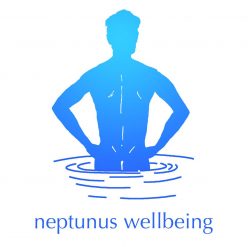Three years ago I got into conversation with Teuna Bongers during the leadership training ”LIFE”. We were both interim directors and fascinated by the theme of attention. A good reason to visit Teuna at work, at Kinderopvang Heijendaal. When she warmly welcomed me to her office on a sunny spring day in 2017, where she managed 50 employees as acting director, she felt calm. She beamed with joy as she spoke to the parents and supervisors. I asked her: What is attention anyway?

Teuna: “Attention is taking time for what the other comes with. Just sit down for it. When I pay attention, I make room in myself to be there for the other. ” Does that always work out? “When someone enters my study, I quickly make a distinction. Is it urgent or is it something that can also be discussed at a different time. Sometimes the other just needs a moment to be seen or heard. Because she is walking around with something that bothers her, for example. That can also be important. ”

What is it like to receive attention. What does that do to you?
“It's nice to receive attention from people I have connected with. But in my role as a manager I do not immediately want attention. Above all, I want to be able to be myself. I have no need to draw attention to my employees. Of course I ask for functional attention when I stand in front of all employees and speak to them. “
“It is nice when I feel like I'm being carried. That is nice if people pay attention from the board. You immediately notice whether that attention is genuine. Then I know that there is a connection and that I can also count on the other. That also applies to myself. If I pay attention myself, I also want to be prepared to receive what you get in return and to do something with it later. I do this by taking joint responsibility, giving support where necessary or returning to it. “
If you pay attention, what does that bring you?
“An employee just wants to share something with me, she asks for a moment of attention. After that, she can do their job with less burden or worry. Very functional. Because she can give her full attention to the children again. But giving attention is also very grateful. Something happens in myself when I pay attention. It gives me great satisfaction when I see someone brighter out of my room. The mere fact that people come to share something is an expression of confidence. I enjoy that. ”
“At such a moment there is also something of letting go of what you are doing. You just have to flip a button. I let go of thinking and arranging and am in the now for a moment. The only thing that matters at that moment is the contact between me and the employee. Actually, at that moment I don't have to do anything but be there completely. Only then is there real attention. And then there is the confidence that I can see the other from my presence and that the solutions will present themselves. That it is good as it is. ”
Teuna gives an example. “There was a group where complaints were that the babies were crying so much. Can happen. Then it turned out that the group had a leader who had a lot of worries. It became clear to me that when there is a lot of crying or a lot of unrest among the children, I should really go and see what is the matter with those leaders. Paying attention to them is therefore also for the children. When I gave the employee space for herself, the babies cried less. Then I saw that there was a direct connection. ”
How does your attention ensure more independence?
Attention also creates more self-awareness among employees and enables them to cope with more. When I started, my predecessor set an extra rule about how to deal with sick children and they did not want to discuss this directly with parents. I was surprised that they themselves proposed that that rule, which was there to protect them, should be abolished again. They themselves are able to discuss this with the parents. I see that they have become more resilient and self-aware themselves.
Let's say you don't have your day and can't get that attention for a while. Do you notice that this has an effect on others?
Teuna: “What I learned during the LIFE leadership course is that what you radiate doesn't stop here. Teuna puts her hand on her chest. “I radiate that further than just my skin and others absorb it. I experienced this firsthand during the training.

“When I first started here, employees assumed that managers never had time anyway. As a result, they didn't come up with the things they worried about. They tried to solve it themselves or it took on a life of its own. Because of that frustration and employees took an attitude of survival, they only did the essentials. I am glad I was able to break through that. ”
“There was an employee,” said Teuna, “who wanted to share something with me, but she estimated that I was not open to it. She had had a collision with a parent, she wanted to say that before she saw that parent again. As an employee you are looking for the most feasible solution for that moment. By sparring you can talk about it: why did it touch you so much. And what are alternatives. As a result, it does not become unnecessarily larger. Now she has been walking around with it for two weeks. If I could have spoken to her, I could have asked her, what would you like to say with the parent next time? ”
“There are different degrees of attention. Is it a regulation or does someone want to say something of themselves. You can taste this in the first sentence. ” (Teuna Bongers)
I have a small chair next to my desk, so that someone can come and sit with me, without immediately creating a consultation situation. Another form of attention is really seeing the other, in that where they are before, how they are doing their work.
Teuna: “I sometimes take the time to join a group and see how things are going. I then draw their attention to the work they do and not the problem they come up with. I see them in their work. When I am in the group I do not have any comments, I do ask questions but otherwise I am just present. It makes no sense to constantly mention what is not right or what I do not like. ”
What does that presence do to them?
It is a basic need to be seen. I consider it a form of appreciation and respect. I think that the people you direct directly should see in their work. It is a form of respect and appreciation for the primary process, the real work they do. With that I show: what you do, that's what it's all about.
Moreover, I can fulfill my role better if I also see how they work from my position. If something unpleasant happens then, I can better place the problems and think along about solutions.
"Every now and then I help out, which is of course not the intention." Teuna laughs. “One of the leaders then said: oh Teuna are you working? To which I said: Usually I am working here, but not right now! ”

"As a manager I can say that attention makes the difference." (Teuna Bongers)
“The whole nursery is changing with more attention. An employee recently said: Since you came here things have happened again. You create something. What I achieve is that I invite people to dare more and to undertake things. Because of the attention I give, they have more self-confidence and enthusiasm to stick out their necks. They come to work with more pleasure and motivation. ”

Very inspiring to read how Teuna leads from attention and her feminine power, while remaining completely herself, staying true to herself. Tijs has taught me in recent months to rediscover my leadership in a similar way, no longer from power and authority, but from serving support and sincere compassion. In doing so, I dare to show myself more and more vulnerable and show all facets of myself. After the first sessions I was afraid that I would be "out of the box", but the opposite happened: my bosses in the board no longer treat me with disparity, but with admiration for who I am. They give me all the space to shape the company in my own way. I owe that to myself, and of course also to the mirror that Tijs handed me. Thank you, Tijs, for your loving gentle strength and honesty.